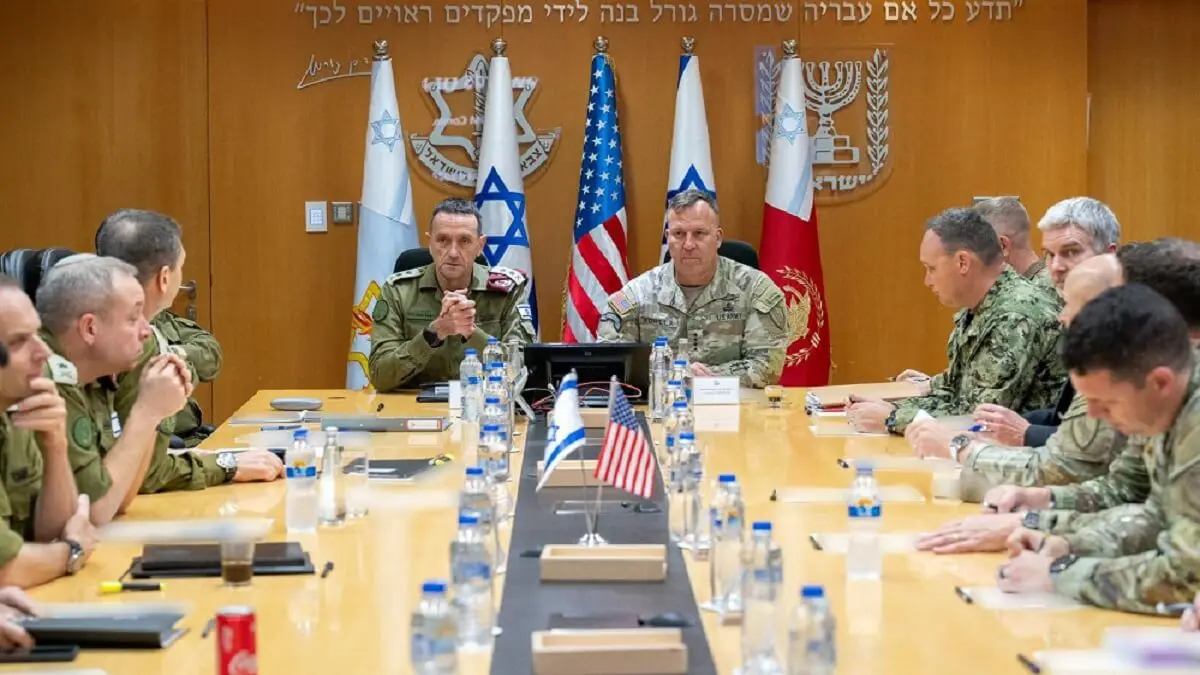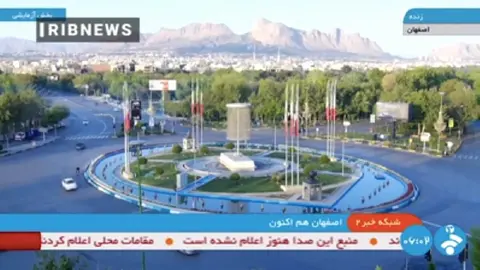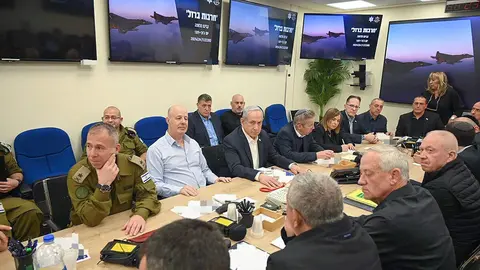Tense caution

Israel is not commenting on the targets hit, a sign that it prefers to keep quiet and avoid escalating the conflict as the US is demanding on the campaign trail, while Iran is playing down the damage for domestic consumption, where the ayatollahs' regime has significant problems, and hinting that it is closing the challenge provoked by the death of seven senior leaders of the Revolutionary Guard's Al Quds brigades at the Iranian Consulate in Damascus. Everyone will have drawn the appropriate lessons.
The truce that Israel and Iran appear to be calling is framed in a very complicated and delicate situation because the two enemies in the region are seeking to finish each other off, but avoiding a direct confrontation that would have unpredictable consequences.
There is a huge difference between the two: Iran seeks to annihilate the state of Israel while Israel seeks to prevent Iran from obtaining a nuclear weapon that would be lethal in the hands of the Ayatollahs' regime. Tel Aviv does not seek the annihilation of the Iranian Persians, it aspires to regime change, like the entire Western world.
In this dynamic, we have had years of indirect confrontation with Iran using its affinity groups in the region. Now, the situation has changed, a relevant step has been climbed, because they are attacking each other directly, albeit in a more or less controlled and surgical manner. Each shows that it is capable of reaching enemy territory, but Israel demonstrates a greater capacity for defence with its Iron Dome, its missile shield and drones, and with the great help of its allies.
In the middle of this chessboard of geostrategic, energy and regional control interests are the Palestinians. For many years, since 2007, they have suffered from the radical dictatorship of Hamas in Gaza, with very bloody confrontations with Israel, in the face of the options of failed agreements with the Palestinians in the West Bank and the Palestinian National Authority.
In this environment, the Abraham Accords reached four years ago, in 2020, between Israel and Arab and Muslim countries such as the United Arab Emirates, Bahrain, Morocco and Sudan completely changed the situation with the development of cooperation in all sectors of society.
Just as Saudi Arabia was on the verge of establishing relations with Israel, on 7 October all hell broke loose with the bloodthirsty and exhibitionist terrorist attack by Hamas and its supporters against Israel, prompting the decision to end Iran's influence in the region, wipe out Hamas in Gaza and then the rest of the militias in what the Israeli government announced would be a long-term war. The key to this very complicated decision is to avoid direct confrontation with Iran.



